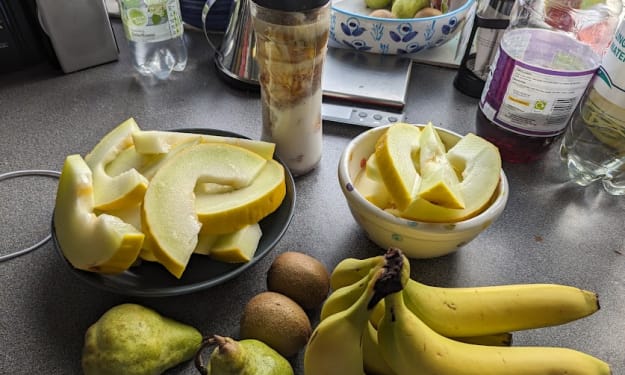Weight loss can be a challenging journey, but it is important to remember that healthy weight loss is the key to long-term success. Healthy weight loss is all about making sustainable lifestyle changes that will allow you to lose weight and keep it off in the long run.
When trying to lose weight, it is important to focus on healthy fats, such as those found in nuts, seeds, avocado, and fatty fish. These types of fats can help to keep you feeling full and satisfied, which can help to reduce overall calorie intake.
It's also important to limit intake of saturated fats, which are typically found in animal products and processed foods. Saturated fats have been linked to an increased risk of heart disease and should be limited as much as possible.
It's also important to note that fats are important for overall health, and should not be avoided altogether. Essential fatty acids, such as omega-3s, play important roles in brain function, heart health, and inflammation.
In summary, when trying to lose weight, it is important to limit overall fat intake, but also to focus on healthy fats and limit saturated fats. It is also important to consult a healthcare professional for personalized recommendations as per individual needs and health status.
The recommended daily intake of fat for weight loss varies depending on individual factors such as age, sex, and activity level. However, it is generally recommended to limit fat intake to 20-35% of daily calories.
One of the most important steps in healthy weight loss is to create a calorie deficit. This can be done by either reducing the number of calories you consume or increasing the number of calories you burn through physical activity. A safe and healthy rate of weight loss is 1-2 pounds per week, which can be achieved by creating a calorie deficit of 500-1000 calories per day.
Another important aspect of healthy weight loss is to focus on nutrient-dense foods. This means eating a diet that is rich in fruits, vegetables, lean proteins, and healthy fats. These foods provide the nutrients your body needs to function properly, while also keeping you feeling full and satisfied. Avoiding processed foods, added sugars, and saturated fats can also help with weight loss.
Physical activity is also an important aspect of healthy weight loss. Regular exercise can help to increase muscle mass, boost metabolism, and burn calories. Aim for at least 30 minutes of moderate-intensity exercise, such as brisk walking or cycling, on most days of the week.
It's also important to remember that weight loss is not just about the number on the scale. Building muscle, which weighs more than fat, can also be an important part of a healthy weight loss journey.
Lastly, it's important to set realistic and achievable goals. it's important to consult with a healthcare professional before starting any weight loss program and to have a plan in place for when you reach your goal weight.
In conclusion, healthy weight loss is all about making sustainable lifestyle changes that will allow you to lose weight and keep it off in the long run. It's important to focus on nutrient-dense foods, regular physical activity, and realistic goals, along with seeking professional guidance as needed.






Comments
There are no comments for this story
Be the first to respond and start the conversation.